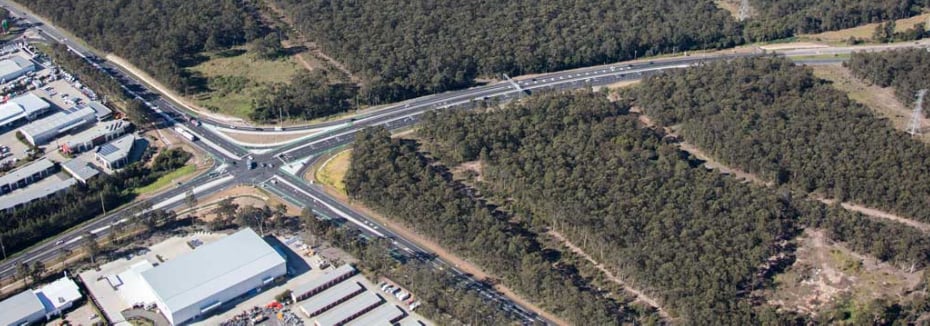"Tick and flick" training is when a training officer does not adequately teach nor assess the skills required for the qualification. It often occurs when the trainer marks as legitimate whatever skill the student claims to possess, or the provider offers such fast-tracked training it's not conceivable the student could be adequately qualified at the end. It's been a major topic of contention in the skills sector across Australia including childcare, education authorities, and unfortunately, civil construction too.
The rise of 'tick and flick' training
Upfront payment of fees and government subsidies may encourage Registered Training Organisations to enroll as many students as possible, at the expense of quality training. Providers who offer courses in this manner do so simply for financial gain. The supposed concept is that when the training provider submits all documentation of a completed course to the government, they obtain debt funding for the cost of a completed course under the VET FEE-HELP scheme.
“This leads not only to government money being wasted but employers’ time and effort being wasted,” said John Hart, Chariman of the Federal Government’s new Vocational Education and Training Advisory Board. “We’re still seeing examples where the system is being rorted. There are loopholes that need to close. We need to review the quality standards to make them more outcomes focused … based on what a graduate can do,” he says.
Master Builders Australia chief executive Wilhelm Harnisch laments the “dumbing down” of training for the building trades. “Master Builders is concerned there’s been a dumbing down through certain RTOs providing quickie courses that do not satisfy the needs of industry,” he says.
The VET-FEE HELP scheme is currently undergoing systematic reforms to include safeguards to ensure the funding scheme is delivered in a way that has community accountability.
What this means for the mining and construction industry
In short, it reduces confidence in the qualifications that are being issued, and that the people holding those qualifications have the competencies.
For those on the receiving end of flick and tick training, like project superintendents or plant managers, it means that even more stringent screening of compliance and worker competency is required, and an increased likelihood of delays through machine breakdown or injury.
For employers who choose a questionable RTO, you'll be stuck with employees who do not possess the competencies required for getting those qualifications. It could mean you'll be turned away at the gate of a construction site, incur immediate and opportunity costs because your team needs to undergo more authentic training, not to mention the safety risks to your employees and fleet.
When you're quoting for a job, or even make it to the job site, the plant manager or other site supervisors may ask do you have your excavator license? Their follow up question will always be how many hours of experience do you have in said machinery? And trust me, they will ask. If you say yes to the first, but none or little to the second, you've not only wasted your time but theirs too. Remember, the construction industry is still very much built on word of mouth, track record and industry relationships. If you or a representative of your company burns a member of project management, they don't forget.

The way forward
I have certainly noticed some problems in the civil construction space, where providers have swooped in and offered low quality qualifications, based on, as far as I can see, no training.
We are all citizens and have both a right, and responsibility to demand proper outcomes from any government investment. Public investment must produce quality results. Our collective voice is needed. I have discussed the problems with government, industry, public and private providers, to name a few. Despite all having different angles, politics and desires, all unite in the belief both in the sector and of the many quality providers.
It is critical that industry plays a leading role in identifying and selecting providers that will deliver qualifications with integrity. That is the fastest and most effective way to ensure rorts don’t get a foothold in the industry.
...
We should not lament that all is ruined. Because it is not. As you may have seen in the NCVER Total VET Activity report released in early November, the private sector now accounts for almost 70% of all students in Australia.
The many providers are continuing to deliver a quality product. Where to now? That is the question.
It is imperative that we all spend the time in selecting the best quality provider to deliver the Industry’s future skill needs.

Recent Articles
Significant milestone reached on M1 Pacific Motorway extension project
The M1 Pacific Motorway extension to Raymond Terrace project in New South Wales has reached a significant milestone with the final pile driven to complete foundation works on the 11 new bridges being built between Black Holl and Raymond Terrace.
Preferred delivery partners chosen for two hospital projects in WA
Preferred alliance delivery partners have been announced to progress design and development of two new healthcare facilities in Western Australia.
Thiess secures new mining services contract for Mount Pleasant Opeations
Thiess, a subsidiary of the CIMIC Group, has secured a six-year contract with MACH Energy for mining services at the Mount Pleasant Operation in New South Wales.
Get the latest project news
- updates on Australia's pipeline of state and federal projects
- fresh contract awards from major contractors and builders
If you're looking to contact us about other matters, please contact us.





